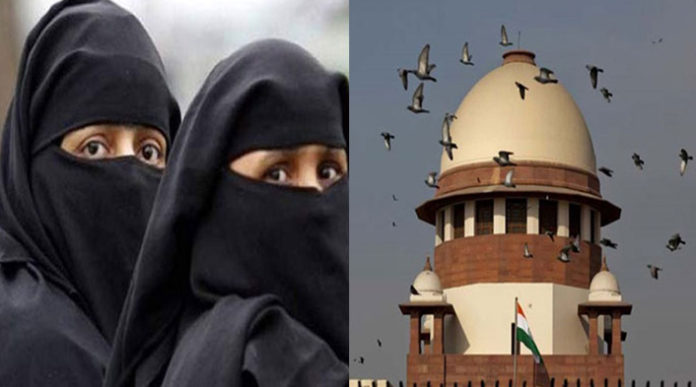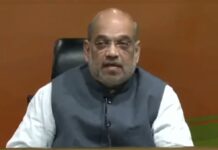Although the activists say the practice of ‘triple talaq’ is “discriminatory”, but India is one of a handful of countries in the world where Muslims can divorce his wife within a minute by saying the word ‘talaq’ three times. Today the Supreme Court (SC) began hearing a batch of 6 petitions and a ‘suo motu’ public interest litigation petition on whether the ‘Triple Talaq’ violates the fundamental rights of Muslim women. The Supreme Court said that it will examine whether triple talaq is fundamental to the religion.
But, many Muslim groups have opposed the SC’s intervention in their religious matters. Among those supporting talaq are the dominant All India Muslim Personal Law Board (AIMPL) and the Jamaat-e-Islami Hind.The move of intervention has the backing of the current Indian government of Prime Minister Narendra Modi.
Triple talaq case has been originated from the petition filed by Shayara Bano in a case of divorce from her husband. The apex court has dealt with a number of such cases before but surprisingly it has not given a consistent interpretation of the laws and regulations. The conflict arises when personal laws are recognized to be in violation of the fundamental rights of people. Article no. 13 of the Constitution describes that any law shall be void to the extent of the contravention, which goes against the fundamental rights of people.
Over the years, the Supreme Court (SC) has taken different views on the question of precedence of personal laws over the fundamental rights. The sensitive issue is being heard by a bench of multi-faith made up of 5 different judges – a Hindu, a Sikh, a Christian, a Zoroastrian and one Muslim. And the bench has combined several petitions from Muslim women into one to examine the issue fundamentally. They have been given 3 days each to argue their cases, with the court saying that the hearing will end by 19th May 2017.
Chief Justice JS Khehar who heads the bench, made it clear at its first hearing today, that the SC will examine whether the practice of triple talaq among Muslims is fundamental to their religion. And it will also examine if triple talaq was an “enforceable” fundamental right to practice religion.
Muslim Personal law came into force in 1937 and all the Muslims are governed by it. The NDA government has always argued that the triple talaq practices basically violate fundamental rights of women. Last month, PM Narendra Modi also asked the Muslim community not to look at the practice. They should look at the practice, not in an angle of that discrimination against women from a political prism, but gender discrimination.




